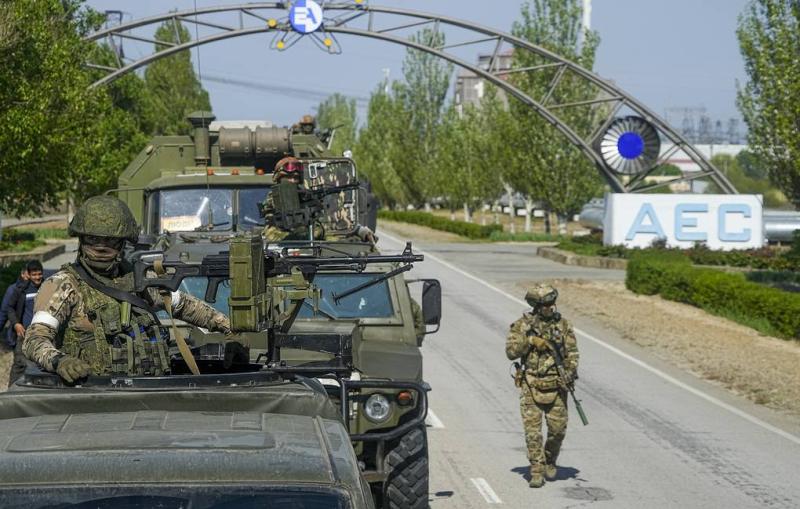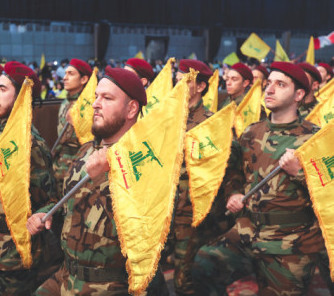
© AP Photo/TASS
Top stories from the Russian press on Wednesday, August 24th, prepared by TASS
Izvestia: When can IAEA visit Zaporozhye nuclear power plant?
Russia expects the International Atomic Energy Agency (IAEA) to visit the Zaporozhye NPP in the near future and is ready to assist it to the fullest in doing so, Russia’s Permanent Representative to the UN Vasily Nebenzya said at a session of the UN Security Council convened at Moscow’s initiative. The visit by IAEA inspectors has been discussed since the situation around the power plant exacerbated in early August. All parties to the conflict have agreed on the inspection, yet the only question is when the experts will get there. The agency says that in case of successful negotiations, its mission may arrive at the nuclear plant in the coming days.
"From a political and military point of view, it is clear that what essentially is being proposed is to give back the Russian-held facility or put it under some sort of other control. This is not realistic," Research Director of the Valdai Discussion Club and Editor-in-Chief of the Russia in Global Affairs magazine Fyodor Lukyanov told Izvestia. "Only an agreement by the opposing sides to refrain from military action can keep the Zaporozhye NPP safe from attacks. So far, it doesn’t look like this. The UN, actually, can play a certain part - a mediating, peacekeeping one, - and actually Mr. Guterres is trying to do so," he added.
"Apparently, the sides have different priorities on the security of the Zaporozhye plant. Russia is concerned over the continued shelling by the Ukrainian side and it would like to draw the attention of the international community to the situation and urge Ukraine to stop these actions," Russian International Affairs Council Director General Andrey Kortunov told the newspaper. "The West would like to link this situation to a more general agenda of the Russian-Ukrainian conflict, demanding Russia pull its troops out of the territory adjacent to the power plant and from Ukrainian soil in general, in order for this issue to remain on the UN Security Council’s agenda," he explained.
Nezavisimaya Gazeta: OPEC+ extension benefits Moscow
Saudi officials made important statements that directly impact Russia and its future oil revenues. Saudi Arabia, as a key regulator of the global oil market, plans to retain or even step up restrictions on the output and total supply of oil to the global market. In order to do so, Riyadh will extend the OPEC+ deal that limits production by member states. OPEC members do not feel responsible for relatively high oil prices and will not try to bring them down through increased production. This stance means that Russia may consider its revenues from oil exports relatively protected, at least from producing countries. That said, so far the US has not abandoned attempts to introduce restrictions on the export prices of Russian oil.
"Under the current situation, the Saudi position completely suits Russia - the OPEC+ agreement will be extended, possibly, under a new name but its essence will remain. Namely, the Saudis and their oil policy allies will refrain from rapidly increasing production despite any persuasion by the Americans and Europeans. An agreement with Russia is much more beneficial to the Saudis than pie in the sky in the form of a hypothetical opportunity to increase its share in the world market by ousting Russia," Stanislav Mitrakhovich, a senior expert at the National Energy Security Fund noted. According to him, the Saudis understand that pushing Russia out of Asian markets may not happen given the positions of India and China.
"The Saudis, above all, are concerned about the well-being of their country and state their position accordingly. For oil producers, the current prices are suitable, large companies bolstered their quarterly profits several fold and while the market is not rejecting this price due to the simple lack of money, they will try to keep it high," says Nikolay Vavilov, specialist from the strategic research department at Total Research. In his opinion, global oil prices are unlikely to drop over increased production in Iran, especially since Iranian oil is already present on global markets in mixtures frequently transported by other countries’ tankers.
Izvestia: EU to face repercussions of ethnic discrimination
The Association on Prevention of Discrimination and Isolation of Russian Germans and Russian-Speaking Fellow Citizens in Germany (VADAR) has addressed German Federal Government Commissioner for Human Rights Policy and Humanitarian Assistance Luise Amtsberg, EU Special Representative for Human Rights Eamon Gilmore and President of the Parliamentary Assembly of the Council of Europe (PACE) Tiny Kox calling for an end to the ethnic discrimination of Russians. In their letter, the human rights activists are demanding that a proposed ban on Schengen visas for Russian citizens be dropped since this is reminiscent of the "Iron Curtain times." On August 30-31, European top diplomats will convene in Prague to discuss this subject.
"At this stage, we see different points of view on the issue of approving a ban on Schengen [visas] for Russians," MGIMO professor and Program Director at the Valdai Discussion Club Oleg Barabanov told Izvestia. "A number of countries are against these measures, however, I think that in the end, the European Union will decide on a complete ban since, first of all, the agenda of the EU’s Russia policy is clearly influenced by Ukraine. We saw that it succeeded in this earlier, both with oil and with grain." "Secondly, these sanctions are rather light measures for the EU," he continued, adding that Ukraine and Eastern European countries have been talking for a while about new restrictions, including those involving Rosatom or gas supplies.
"Obviously, this will exacerbate the situation for all the countries of the union. And the visa ban will partially hurt tourism in southern countries, like Greece. Yet nothing more. Something has to be introduced and this is the easiest," the expert explained.
Rossiyskaya Gazeta: Transit cargo from Iran to Russia to accelerate
Cargos will move faster along the North-South Transport Corridor since Russia, Iran and Azerbaijan have signed a memorandum on simplifying transit deliveries. Currently, the International North-South Transport Corridor is one of the few routes to carry merchandise from Asia to Russia and back.
The route is very promising and significantly reduces transportation time, says Oleg Ivanov, senior instructor at the International Business and Customs Affairs Department of the Plekhanov Russian University of Economics.
Complications emerge with border and customs control in participating countries which make transporting cargos more expensive. Active digitalization as well as the harmonization of information and customs systems are needed in order to overcome these difficulties. According to the expert, the new memorandum signed by the three countries will facilitate this.
Top customs officials of Russia and Iran Vladimir Bulavin and Alireza Moghadasi also said that in the near future they were ready to sign an agreement on the mutual recognition of the status of Authorized Economic Operator (AEO) which will simplify mutual trade. The two countries’ agencies will exchange information on the customs value of merchandise and will cooperate in the sphere of staff education and training.
Kommersant: Ethiopian Airlines offers alternative hub in Addis Ababa
Russia has resumed a direct air link to Ethiopia which was suspended in February. Ethiopian Airlines will fly out of Domodedovo airport in Moscow. Experts note that if starting ticket prices remain, Ethiopia may be in demand both as a winter tourism destination and as a transit hub for travel to Africa and Latin America while also taking on some remaining traffic to the US.
Any new destinations that can be reached directly will be in demand both by tourists and business travelers, according to Vice President of the Association of Tour Operators of Russia (ATOR) Dmitry Gorin. In his opinion, Ethiopia has major independent potential as a location with a year-round tourist season, above all, in the fall-winter period. The expert also gave high marks to its transit prospects, especially connecting flights to Africa, Latin America and the Seychelles.
Long before the pandemic, Ethiopian Airlines successfully attempted to attract some traffic from Europe to Africa from Turkish Airlines (Qatar Airways and Emirates). "They were not flying a lot since there were many competing offers but they were in demand because of lower prices than those by the largest players," Fyodor Borisov, an expert with the Higher School of Economics, explained. In his opinion, the prospects of the hub’s development depend on "retaining reasonable price policy" and the airport’s capabilities.









